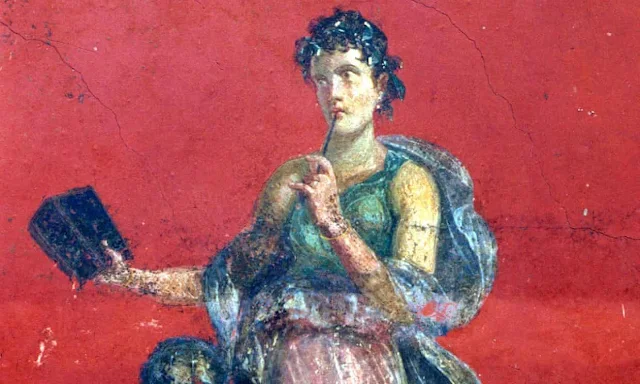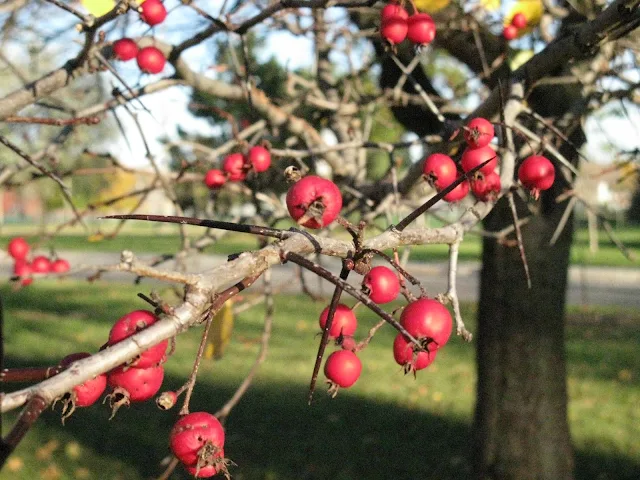One
of complaints made by critics about A.J.M. Smith is that his body of published work
is too small for him to be considered an important poet; if a poet hasn't done
the writing, they reasoned, then how can that poet be considered significant? At
first this view seemed valid to me; however, I also felt that Smith had written
some individual poems that are the work of genius, he was too good a poet to be
dismissed on this one point. Indeed, except for A.M. Klein none of the members
of the Montreal Group of poets have large bodies of published work; Smith was
not a prolific poet but he published more poems than Leo Kennedy and about as
many as John Glassco, both members of the Group. Consider the following
citation:
After a life of persistent devotion
to literature, he has left enough poems to make a single small volume (less, certainly, than a hundred
poems in all), a single volume of prose, a few pamphlets, and a prose translation of the poems of Poe.
This
could be a description of A.J.M. Smith's literary writing (omitting the reference
to Poe) and yet the citation is taken from Arthur Symons' ground breaking book
on the French symbolists, The Symbolist
Movement in Literature (1919), and it is Stéphane Mallarmé who is being
referred to. Symons affirms Mallarmé's work; E.K. Brown is critical of Smith's
work.
Some
poets have small bodies of work, these include Elizabeth Bishop who published
101 poems, Stéphane Mallarmé who published less than 100 poems, Jay MacPherson,
John Thompson (who published two books), Patrick Kavanaugh, and of course
A.J.M. Smith who published 100 poems. Is the poet who publishes a small highly
crafted body of work, each poem the result of many drafts, the product of
considered editing, better or worse than the poet who publishes a lot including
a few brilliant poems? I suspect that
some poets need to write a lot in order to arrive at a few good poems; others
need to write very little but do endless edits and revisions to arrive at a few
good poems of their own. Ezra Pound said, regarding Walt Whitman, that when he
was young he found a small number of Whitman's poems worth reading but now that
he is older he can't find those few poems. Many would say the same thing about
Pound's poetry but few would say it about Elizabeth Bishop's work.
Some
poets are proud of not writing much and I suspect that this is sometimes a
pretention on their part, a kind of snobbery found among both individuals and little
in-groups of poets. I have known people like this. Perhaps these poets have
higher standards than the poet who cranks it out, they would have us believe
this. What are some of the reasons these poets don't write more than they do?
Perhaps they are not very good poets; perhaps writing poetry was just a lot of
talk and socializing; talent without hard work isn't worth much. Poetry is an
art of inspiration and work, not what could or might have been.
Poets
who write "too much" are also open to criticism; it is difficult to say
how much is "too much" but the number of books published by established
Canadian poets may be more than most of us think. Here is a list of several
important Canadian poets and the number of poetry books they published, but with
a proviso, I am not saying that they all published too much, only that the number of books poets publish varies
widely. Irving Layton published 51 books; Al Purdy published 33 books; Dorothy
Livesay published 25 books; Louis Dudek published 23 books; Phyllis Webb
published 23 books; Earle Birney published 21 books; Margaret Avison
published 11 books; P.K. Page published 14 books; and George Johnston published
eight books. All of these poets have made a substantial contribution to
Canadian literature.
When
I was a university student in the early 1970s, I would visit the poetry section
at Classic's Little Book Store on Ste. Catherine Street West here in Montreal.
The store had expanded from one floor to two, and then to a third floor where
the poetry books were displayed at the top of the stairs. I remember seeing Clayton
Eshleman's books, one title in particular stood out, Indiana (Los Angeles:
Black Sparrow Press, 1969), a hefty book of almost 200 pages. And I
remember my first reaction to this book: wasn't it a bit presumptuous to
publish such a lengthy tome? Who had that much to say? My ideal for poets at
that time, but not my personal reality, was a small body of meticulously
crafted work. Over time I changed my opinion about Eshleman, in fact I became a
fan of Eshleman's work and, in May 1978, I invited him to Montreal to read at
the college where I worked as well as at Vehicule Art Gallery where I organized
readings with John McAuley. Unfortunately, this gesture on my part, of
friendship and respect for Eshleman, backfired on me. I found him to be a
difficult person, not very friendly, and I don't remember hearing from him
again after he left Montreal. I think there was a misunderstanding as to
whether he would be paid in Canadian or American money, a difference of a few
dollars that I regret not having made up at my own expense. Let me just say
that Eshleman is a highly talented and gifted poet and translator, his work is
original and visionary.
Many
poets are critical of self-publishing but it has a long history and is a valid
option for many poets; Louis Dudek recommended a number of approaches to
publishing that included self-publishing (Whitman's first book was
self-published), setting up a literary press, and being published by a small
literary press. I have been published by established presses, I have been
published by presses just getting off the ground, and I have self-published one
of my books. My work has always been guided by the central myth of my life,
discovered when I was young, and that is the Garden Myth, the fall from
innocence into experience. My nine published books follow the progression of my
life as it fits the template of the Garden Myth. I am working on two
manuscripts, by the end of my literary career I will have written a medium sized
body of work of eleven or so books of poetry, maybe these two final books will
be self-published online but at least I will have done the work and completed
my life mission.
In
itself publishing too much or too little is not a valid basis on which to
critique someone's life work; at best, it may be a way to qualify one's
statements about the work, perhaps as an addendum to other more serious
criticism; at worst it is lazy criticism and does little to evaluate a poet's
work. I agree with Louis Dudek and T.S. Eliot (whose body of published poems is
fairly small), both said that the final critic or judge of a poet's work is
time. It isn't how much or how little you publish, it's how good the work is
that you publish; it's not possible to know what poetry will last and what
poetry will be forgotten, that's determined by unknown variables in a future
that is also unknown.
Stephen
Morrissey
September
2019


























